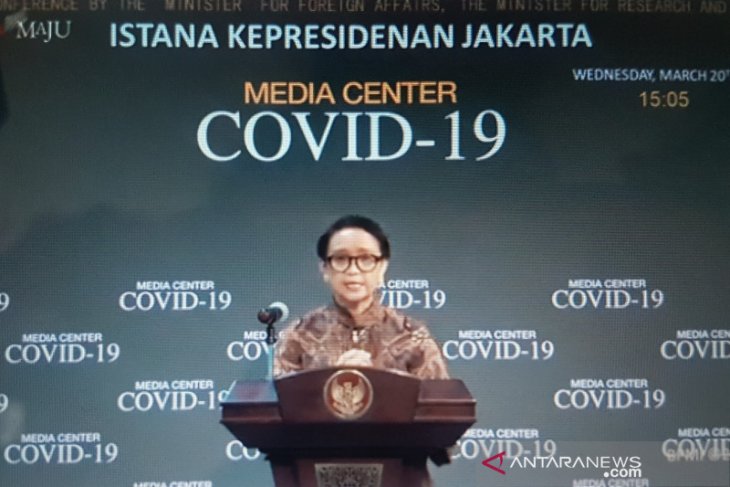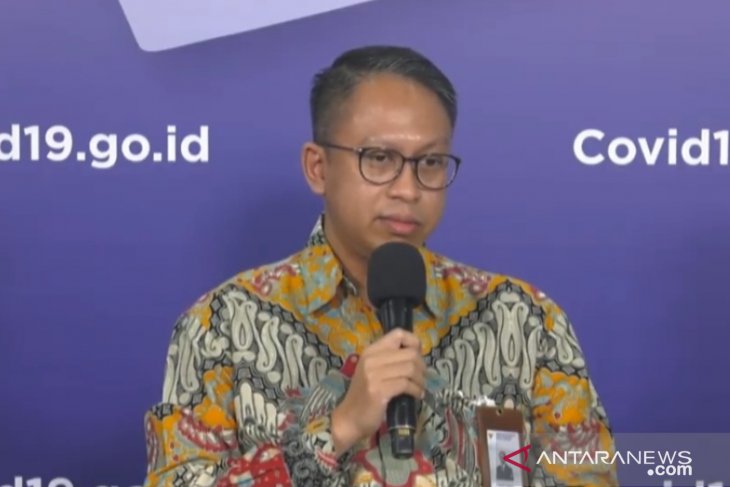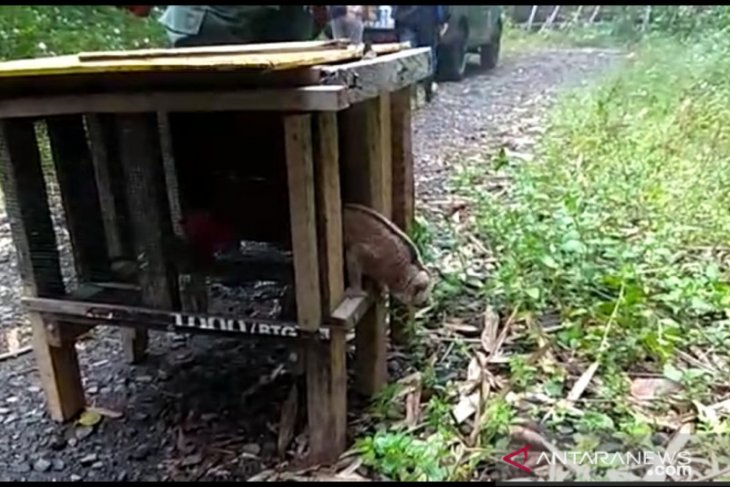Live Streaming
Program Highlight
Company Profile

Ani Hasanah
June
 Indonesian Foreign Affairs Minister Retno Marsudi. (ANTARA/Yashinta Difa)
Indonesian Foreign Affairs Minister Retno Marsudi. (ANTARA/Yashinta Difa)
A total of 114,587 Indonesian citizens returned back to the country during the course of the last three months amid the COVID-19 pandemic.
"Over a period of nearly three months, from March 18 to June 17, 2020, we have recorded that over 110 thousand, or precisely 114,587 Indonesians returned to the country," Foreign Minister Retno Marsudi noted during a video press briefing in Jakarta on Thursday.
The number of Indonesian citizens returning from overseas rose by 3.7 percent, or 4,130 individuals during the course of a week. The returnees were mostly from Malaysia, crew members, and Indonesian repatriated citizens.
Marsudi pointed out that 83,035 Indonesian citizens had returned from Malaysia, an increase of two percent, from that recorded in the previous week.
In the meantime, 23,297 Indonesian crew members returned from 30 countries to Indonesia through five entry points in Jakarta and Bali.
The number of returning Indonesian crew members rose by 1,564 people, or 7.2 percent, from that of last week.
In the meantime, 8,255 people repatriated from 49 nations, including four from South Korea and two from Peru, arrived in Indonesia on Wednesday (June 17).
The number of repatriated Indonesian citizens returning to the country increased by 956 people, or 13.1 percent.
Furthermore, during the period from March 18 to June 17, 2020, the Indonesian government, through the Indonesian Embassy (Consulate) and consulates in Malaysia, distributed 304,608 packages of daily essentials to its citizens.
The Indonesian Diaspora in Malaysia also sent 109,168 similar packages, thereby bringing the total number of aid packages distributed to Indonesian citizens in Malaysia to 413,776.
Worldwide, a total of 481,940 aid packages were distributed to Indonesians overseas, Marsudi noted. (ANTARA)
June

Special Staff for Connectivity, Services Development and Natural Resources from the Coordinating Ministry of Economic Affairs, Raden Edi Prio Pambudi during a press conference of the Task Force for Acceleration of COVID-19 Handling in Jakarta, Thursday (18/6/2020). ANTARA/Katriana/ac.
The Coordinating Ministry for Economic Affairs affirmed that preconditions for recovery in the nine economic sectors will continue to give priority to the aspect of public health to protect the people from COVID-19 transmission.
"When we determine the social-economic sectors, these health requirements are surely prioritized," Special Staff for Connectivity, Services Development, and Natural Resources from the Coordinating Ministry of Economic Affairs, Raden Edi Prio Pambudi, remarked during a press conference of the Task Force for Acceleration of COVID-19 Handling in Jakarta, Thursday.
Pambudi highlighted the need for policies concerning COVID-19 handling and economic recovery to go hand-in-hand and be implemented effectually.
"Quite akin to two sides to a coin. This means they need to go hand-in-hand and effectively, as spread of the virus had halted business activities that surely impacted socio-economic conditions," he stated.
Hence, to ascertain that economic activities can be conducted smoothly, health protocols should continually be implemented and upheld, as the key prerequisite to continue such activities.
"It means that we keep track of the risks in data gathering, and then, we also look at the health and socio-economic aspects," he noted.
The implementation of health protocols does not solely apply in the general context, but a deeper mechanism should also be in place for applying them in each sector owing to diverse characteristics in the economic activities they conduct.
He also stressed that discipline in applying health protocols should take precedence over others.
"Even if (economic sectors) are opened, several requirements should be met. In this case, how to inculcate measures for health maintenance as a day-to-day habit, including wearing masks and other steps. These must be applied," he emphasized.
Furthermore, other aspects that encouraged revival of the nine sectors include the fact that they are projected to not hold the potential risk of transmission. These sectors are also viewed as significantly contributing to the economy and employment.
"Another most important consideration is that these sectors have broad direct links with other sectors. For instance, the transportation of goods. Areas, including agriculture and industry, are also benefited," he pointed out.
Economic sectors to be opened for the recovery of economic activities include mining, oil, industry, construction, plantation, agriculture, animal farming, fisheries, logistics, and transportation of goods.(ANTARA)
Indonesia won a vote in the United Nations, Wednesday, June 17, to be one of the Economic and Social Council (ECOSOC) members for the 2021-2023 period, representing the Asia-Pacific, along with Japan and Solomon Island.
The election, held with no plenary session owing to safety concerns in the wake of the COVID-19 pandemic, involved some 190 permanent representatives to cast their votes, the Ministry of Foreign Affairs noted in a statement received by Antara News Agency in Jakarta on Thursday.
Indonesia secured 186 votes from the total ballot, while Japan pocketed 185 votes, and Solomon Island garnered 187 votes. The council has 54 nations as its members for a three-year work period.
This is the 12th time that Indonesia joins the ECOSOC after earlier for the 2012-2014 period, while in 1970 and 2000, it was honored to be the council’s president, while in 1969, 1999, and 2012, it served as the vice president.
For this period, Indonesia is committed to actively participating to accomplish the Sustainable Development Goals (SDGs) in 2030, as well as growing roles on strategic issues, especially in several bodies under the ECOSOC, including the FAO and WHO, according to the ministry.
This membership holds significance for Indonesia in the form of encouraging post-pandemic economic and social recoveries, mirroring its global governance, and enhancing the national priority program that aligns with the SDGs, among others.
The Presidential Office emphasized that it was an honor for Indonesia to garner greater trust from the international community, as the country was also elected as a member of the UN Security Council for 2019-2020 period and the UN Human Rights Council for the 2020-2022 period.
"The Government of Indonesia is immensely grateful and really lauds the trust and honor bestowed on the country from the international community for being chosen to be the ECOSOC member for the 2021-2023 period," Fadjroel Rachman, President Joko Widodo’s spokesperson, noted.
"We express our gratitude to the Ministry of Foreign Affairs and Minister Retno Marsudi, as well as the cabinet of Indonesia Maju for its collaborative support in Indonesia's diplomacy, and also to the people of this country," he added. (ANTARA)
June

The Bengkulu Natural Resources Conservation Office (BKSDA) releases a male Sunda slow loris to the Bukit Kaba Eco-tourism Park (TWA) in Rejang Lebong District. ANTARA/HO-BKSDA Bengkulu
The Bengkulu Natural Resources Conservation Office (BKSDA) released a male Sunda slow loris and a male black eagle into the Bukit Kaba Eco-tourism Park (TWA) in Rejang Lebong District.
The release of the Sunda slow loris (Nycticebus coucang) and black eagle (Ictinaetus malayensis) into the wild several days ago was part of the endeavors to restore the park’s function and ecosystem, Said Jauhari, head of the Conservation Section I of the Bengkulu BKSDA, stated in Rejang Lebong, Bengkulu, on Thursday.
The conservation office examined the health of the two protected animals and reviewed the feasibility of the ecotourism park as a habitat before releasing them.
The BKSDA zeroed in on the Bukit Kaba TWA as a release site since the area is well-protected and in good condition. It has copious food sources, perching and nesting places, as well as an environment to support the breeding of animals.
They have also ensured that the release of slow loris and black eagles will not disrupt the natural balance of the ecosystem in the Bukit Kaba TWA. Black eagles inhabit lowland, evergreen, and montane forests, up to four thousand meters above sea level. They prefer slopes and mountainous country regions and areas with forest cover.
Approximately 10 thousand to 100 thousand birds are spread across northeastern Pakistan and the base of the Himalayas through Bhutan, India, and Sri Lanka, and down into Malaysia and Indonesia.
The Sunda slow loris, also known as the greater slow loris, is native to parts of Indonesia, Malaysia, Thailand, and Singapore.
Locals in these regions know the Sunda slow loris by other names. Its scientific name, coucang, is derived from its common name in Indonesian, kukang. However, it is also known there as malu-malu, which means “shy”. (ANTARA)


